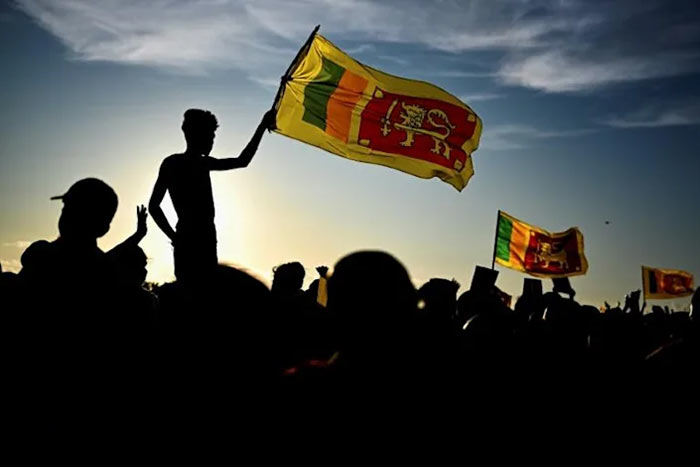Sri Lanka protesters vow to continue anti-government campaign despite new Prime Minister

(AFP / Jewel SAMAD)
Sri Lanka’s new prime minister will begin forming a unity government on Friday, but his appointment has failed to appease anti-government protesters demanding the resignation of the president for the country’s disastrous economic crisis.
President Gotabaya Rajapaksa appointed veteran opposition politician Ranil Wickremesinghe as the island nation’s prime minister late on Thursday after a week of violent clashes that left 9 people dead and over 300 injured.
The president’s elder brother, Mahinda Rajapaksa, quit as prime minister on Monday as the violence spiralled and is in hiding in a military base.
“We will stop this struggle when our people get justice,” said Chamalage Shivakumar, one of the hundreds of people who have camped out at a protest site in the main city Colombo.
“Whoever they appoint as prime minister, we will not stop this struggle until people get relief.”
Wickremesinghe is the only lawmaker from his United National Party in the country’s parliament and will be reliant on rival political parties to form a government. An alliance led by the Rajapaksas holds about 100 of parliament’s 225 seats, while the opposition has 58 seats. The rest are independent.
On Friday, Wickremesinghe met India’s high commissioner, or ambassador to Sri Lanka, his first publicly known contact with a foreign government since his appointment.
“Discussed continued cooperation for economic recovery and stability in Sri Lanka through democratic processes,” the Indian High Commission in Colombo said in a tweet.
New Delhi is battling China for influence in strategically important Sri Lanka, which lies on key shipping lanes between Asia and Europe and is home to major infrastructure projects financed by both countries.
Protesters said the appointment of Wickremesinghe will do little to ease the anger against the president, who they say is ultimately responsible for the worst economic crisis to hit the nation since it became independent in 1948.
Buffeted hard by the pandemic, rising oil prices and populist tax cuts by the Gotabaya brothers, Sri Lanka is critically low on foreign exchange, and rampant inflation and fuel shortages have brought thousands onto the street in a month of protests that had remained predominantly peaceful until this week.
(Reuters)
Latest Headlines in Sri Lanka
- Sri Lanka President issues extraordinary gazette on vehicle imports January 27, 2025
- Sri Lanka targets $36 Billion in export revenue by 2030 under new national policy January 27, 2025
- Air Vice Marshal Vasu Bandu Edirisinghe appointed new SLAF commander January 27, 2025
- Ex-Minister Piyankara Jayaratne faces three corruption cases filed by CIABOC January 27, 2025
- 2,300 centers to be set up for Sri Lanka’s e-NIC information collection January 27, 2025



Of course! I hear Mr. Bond who said “gota-go-gama” must go on, is soon going to have State Trading Corporation engineers come by and erect permanent structures with A/C’d rooms, getting rid of the wobbly, unsightly tents! Also the foreign-funded NGO’s have been instructed to change the buffet menu from just chicken-buriyani to include also mutton-buriyani for enjoyable variety for our patriotic Aragalayas!